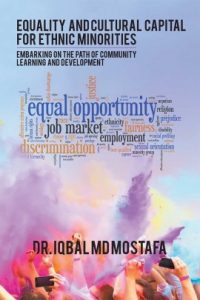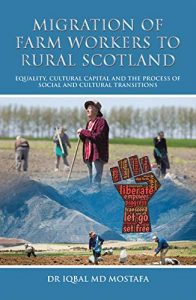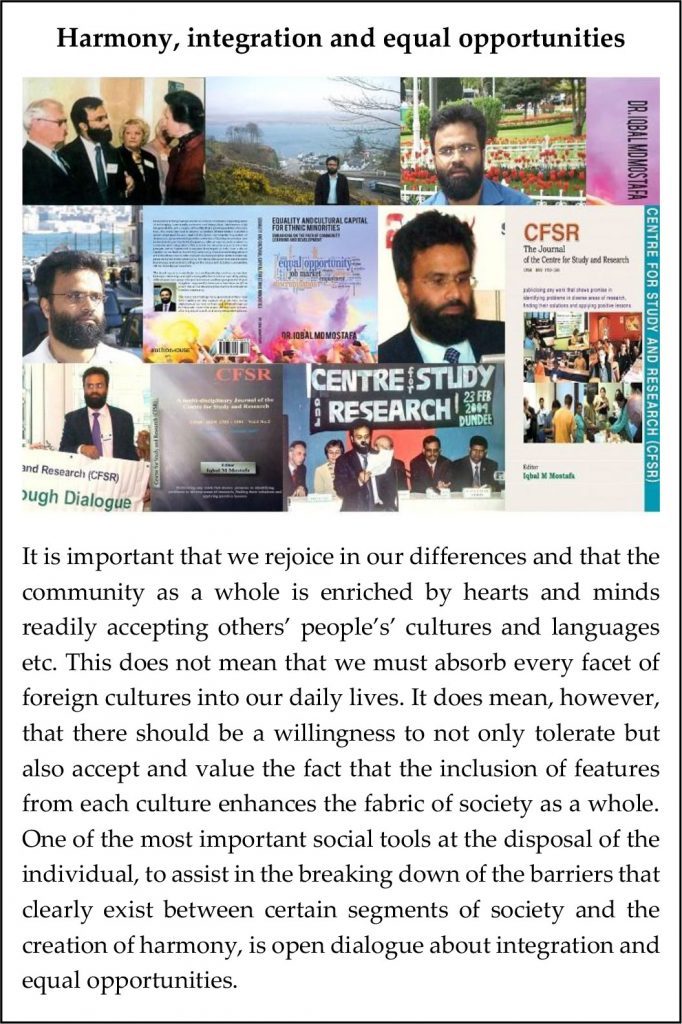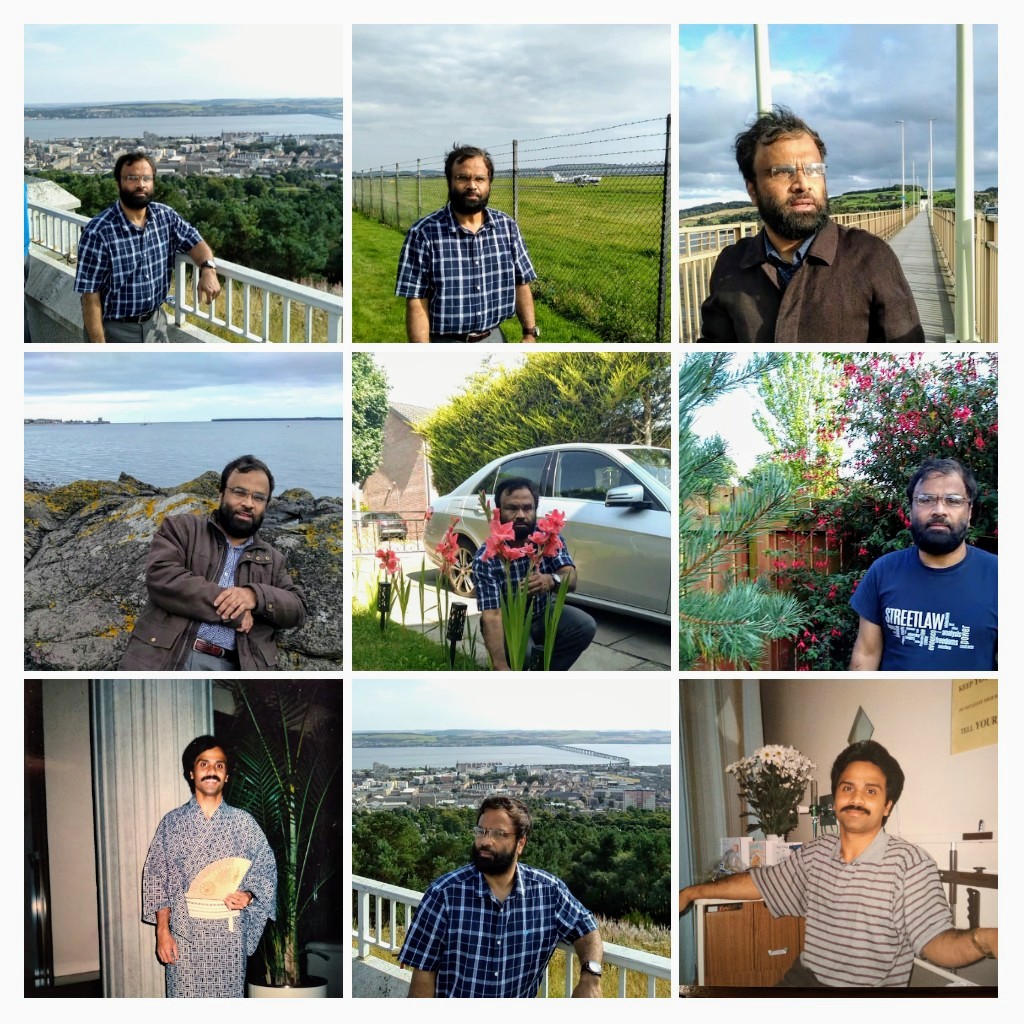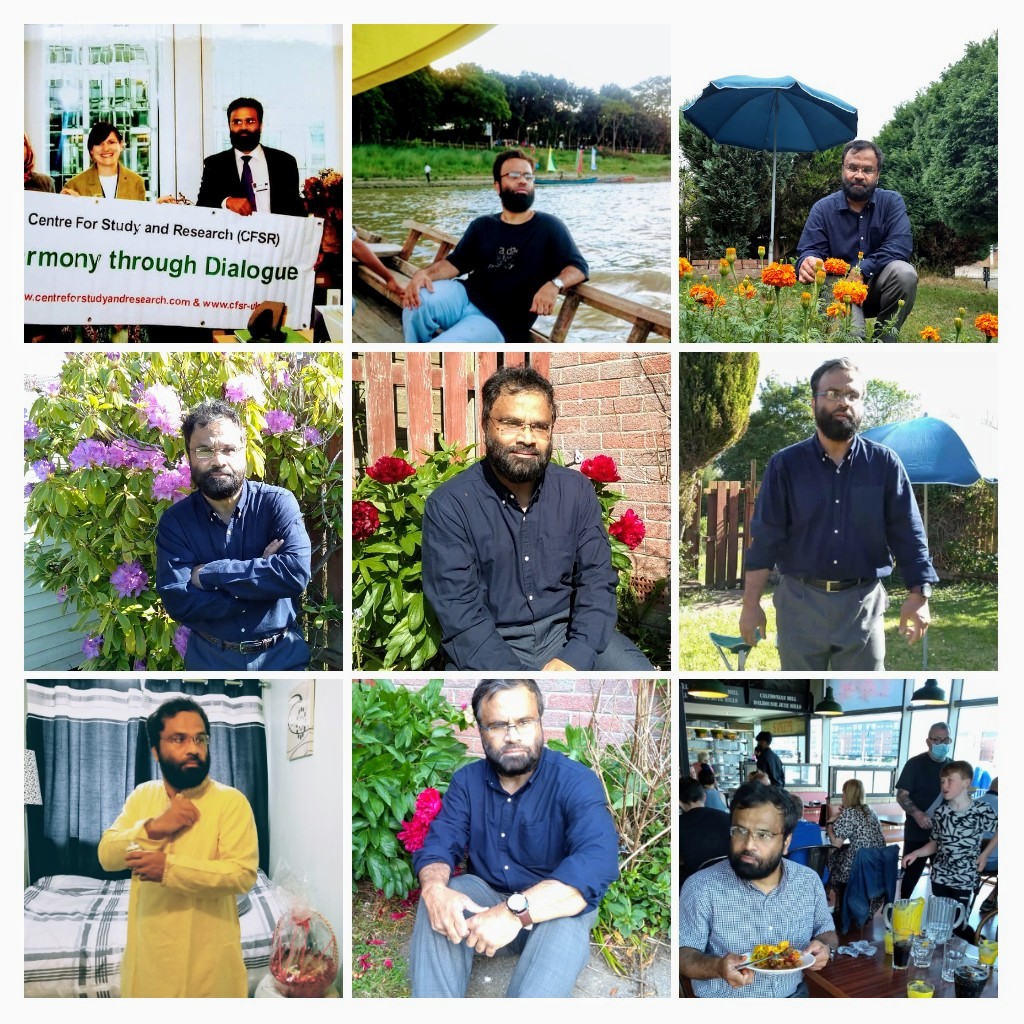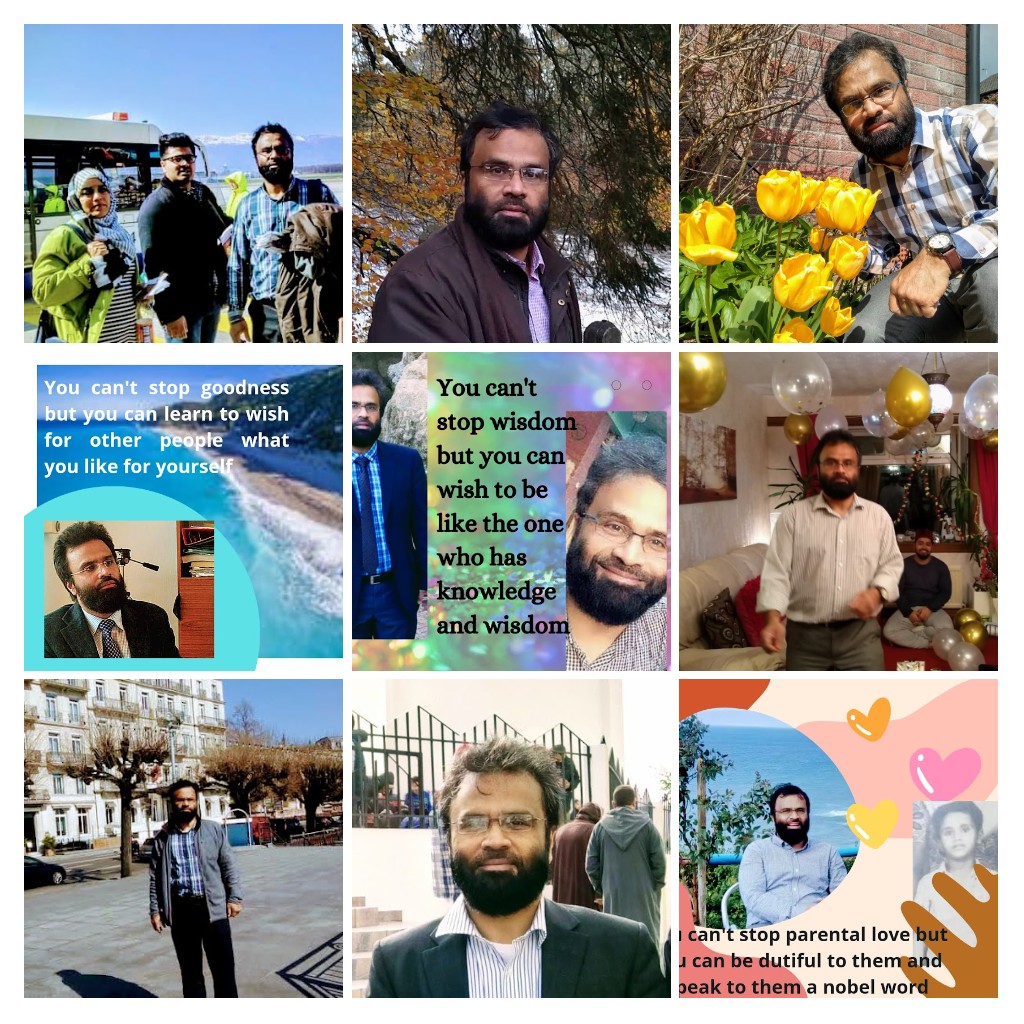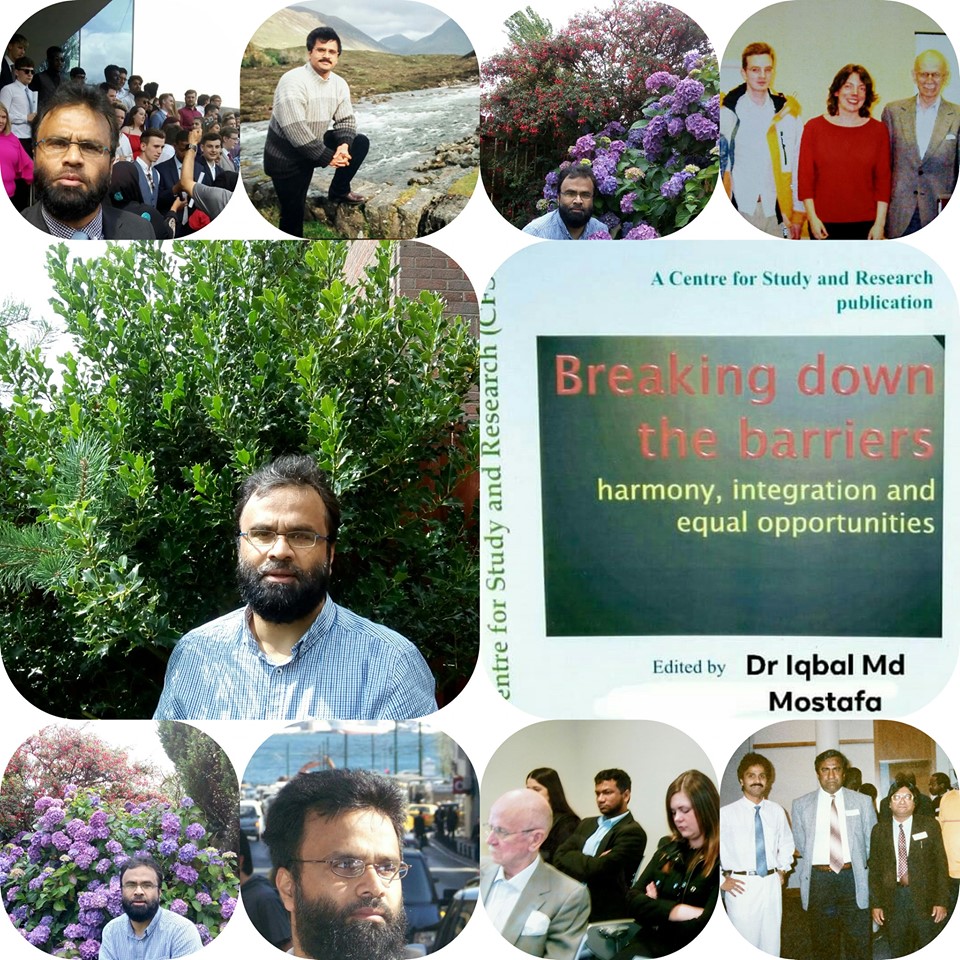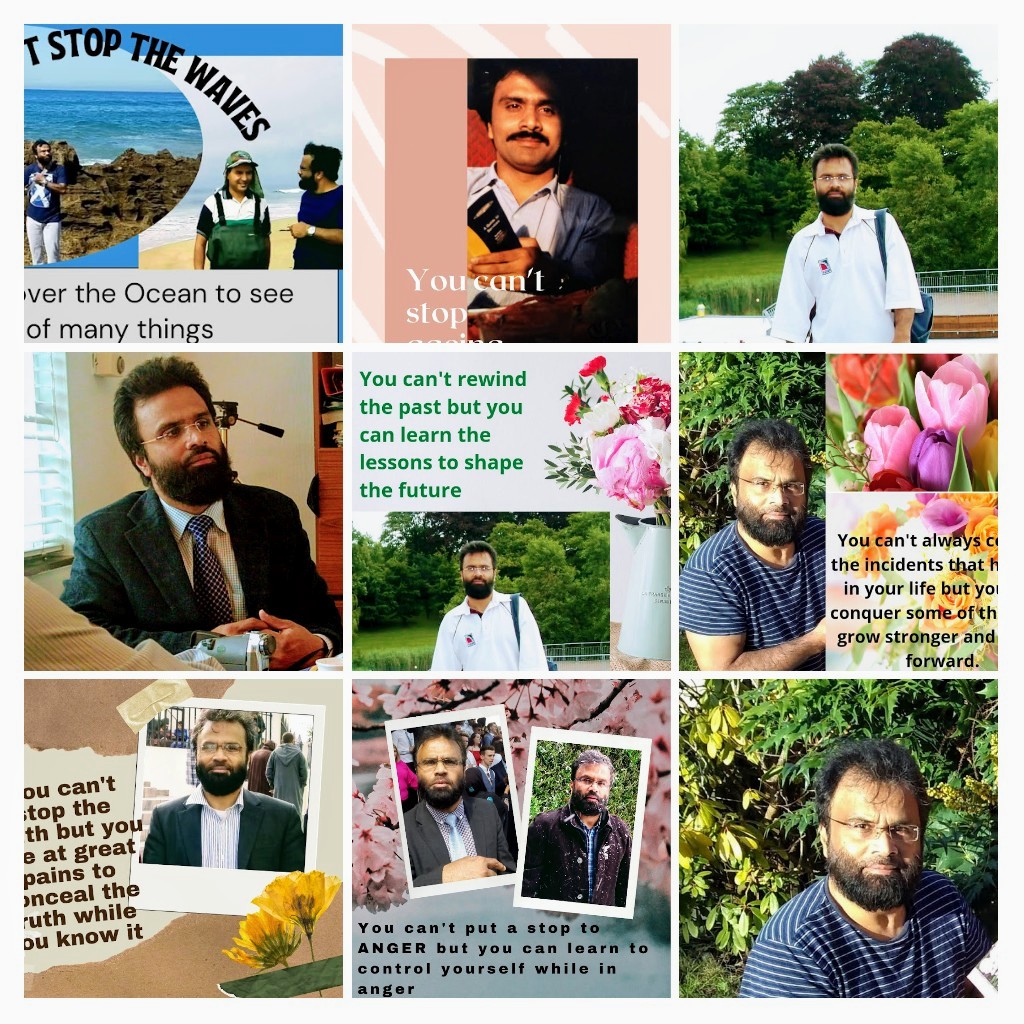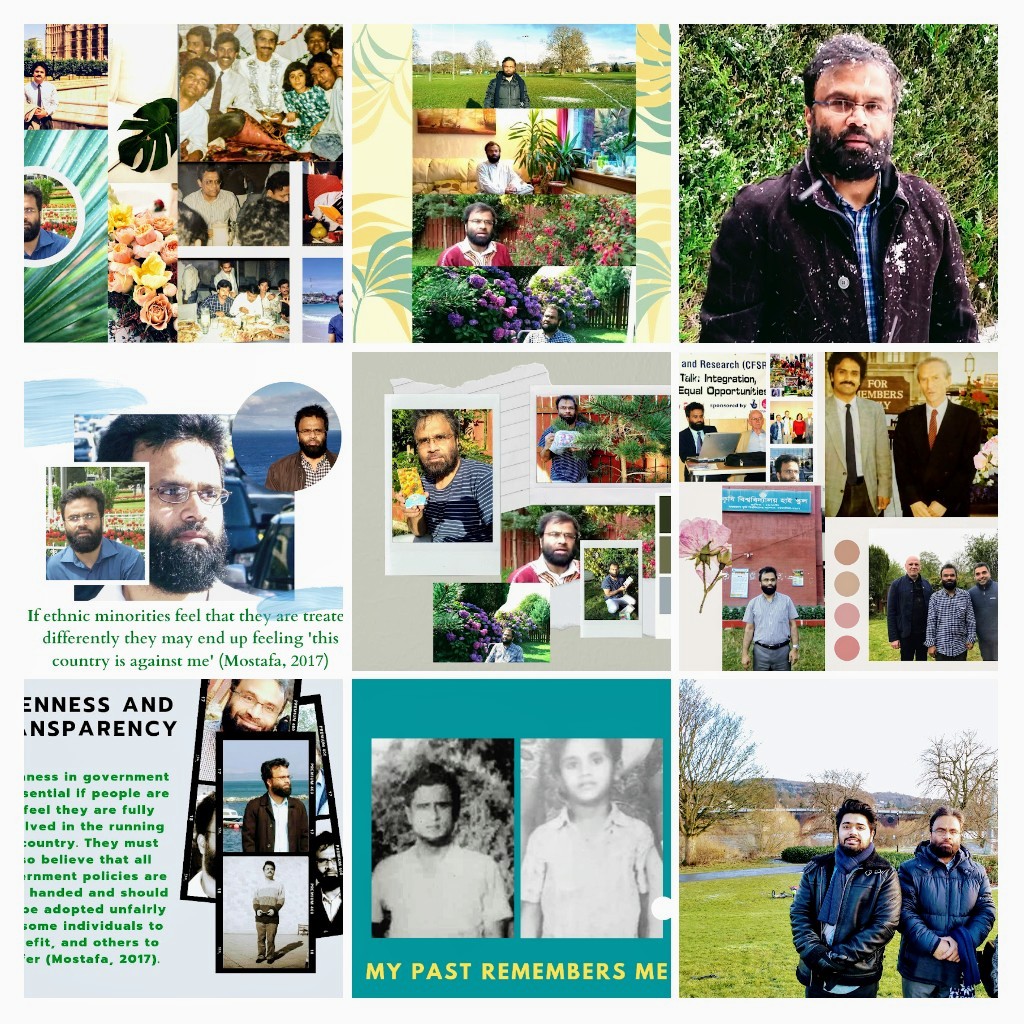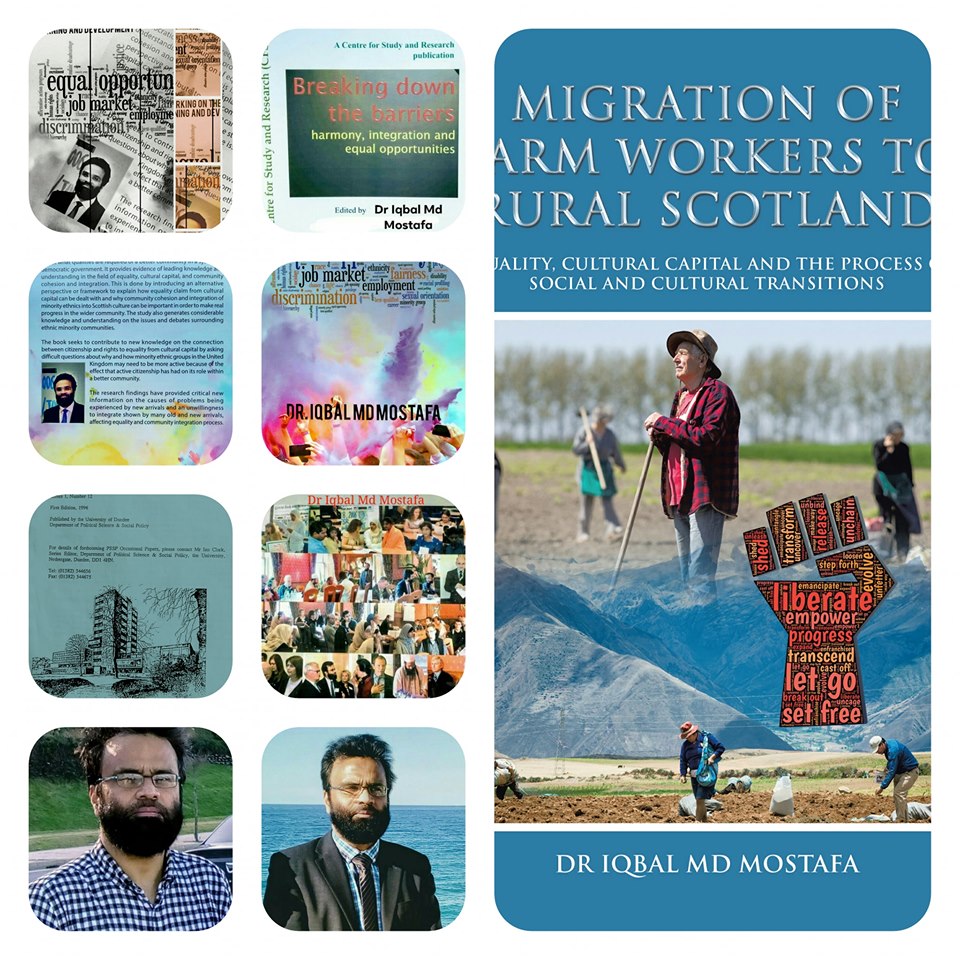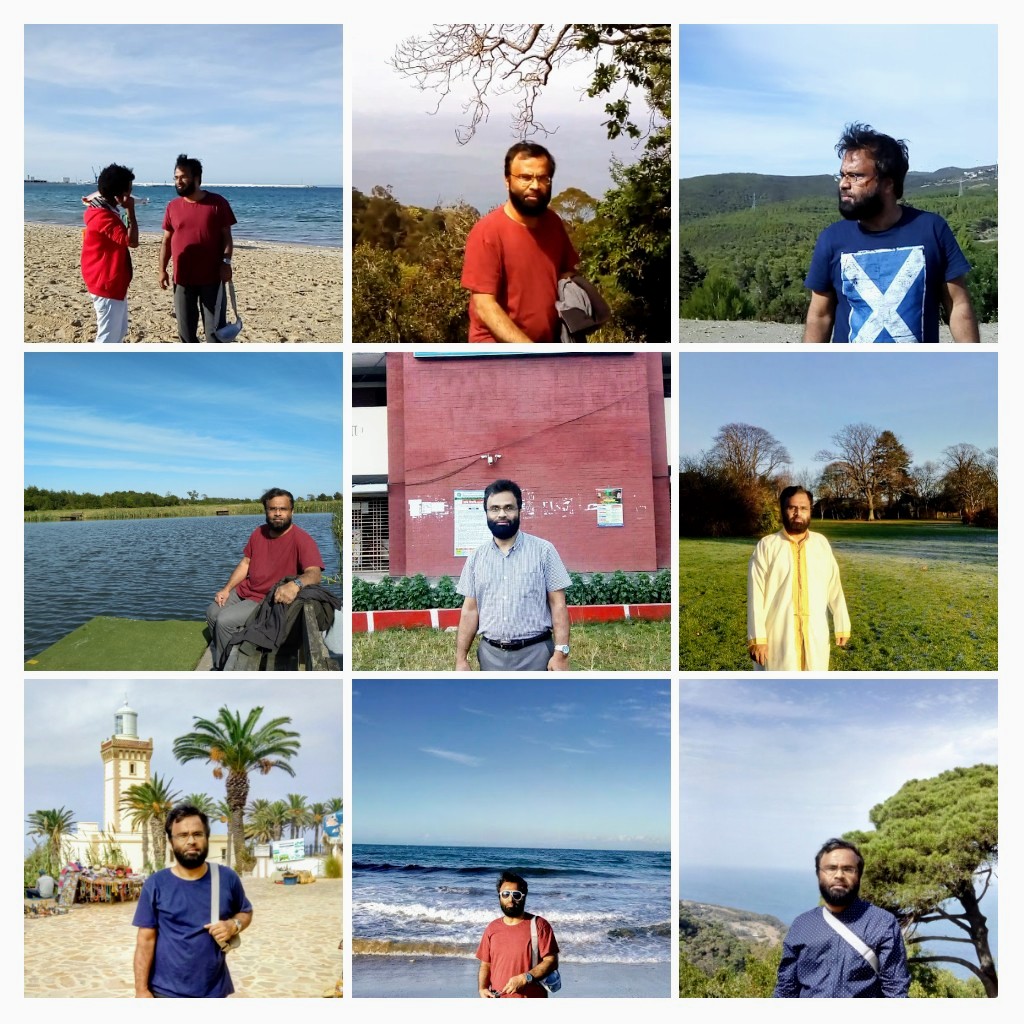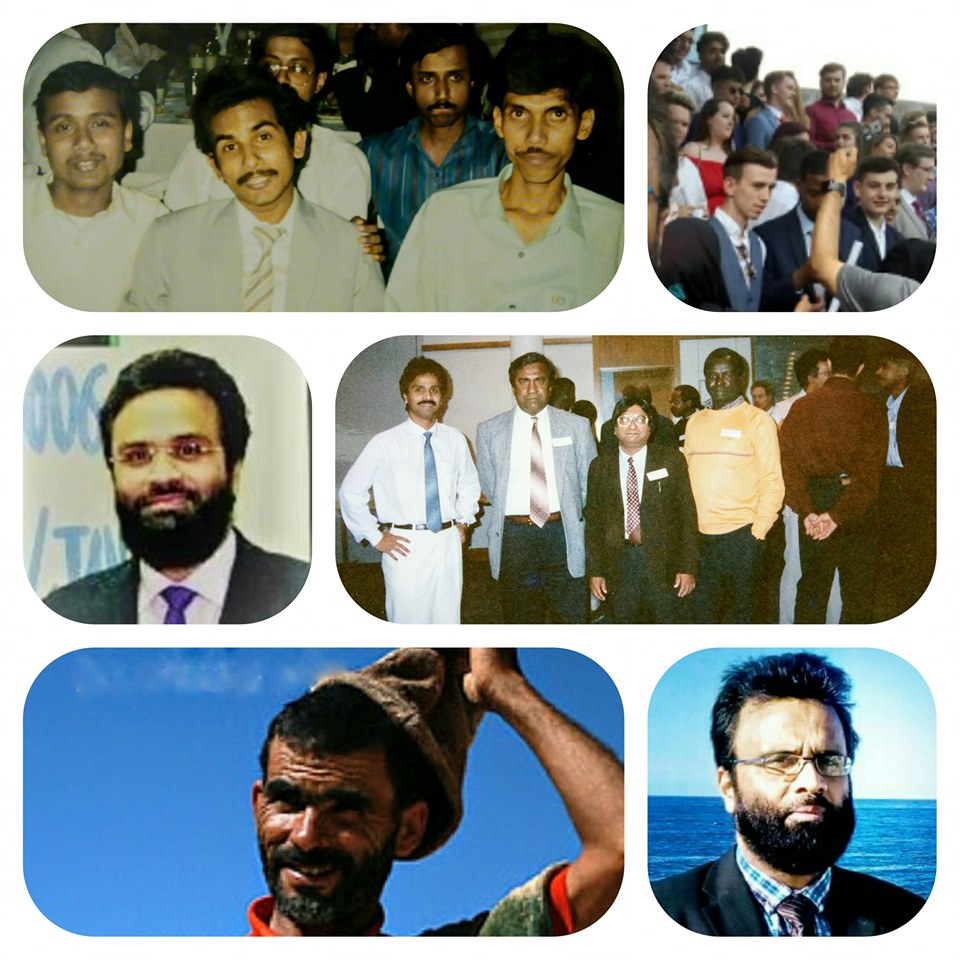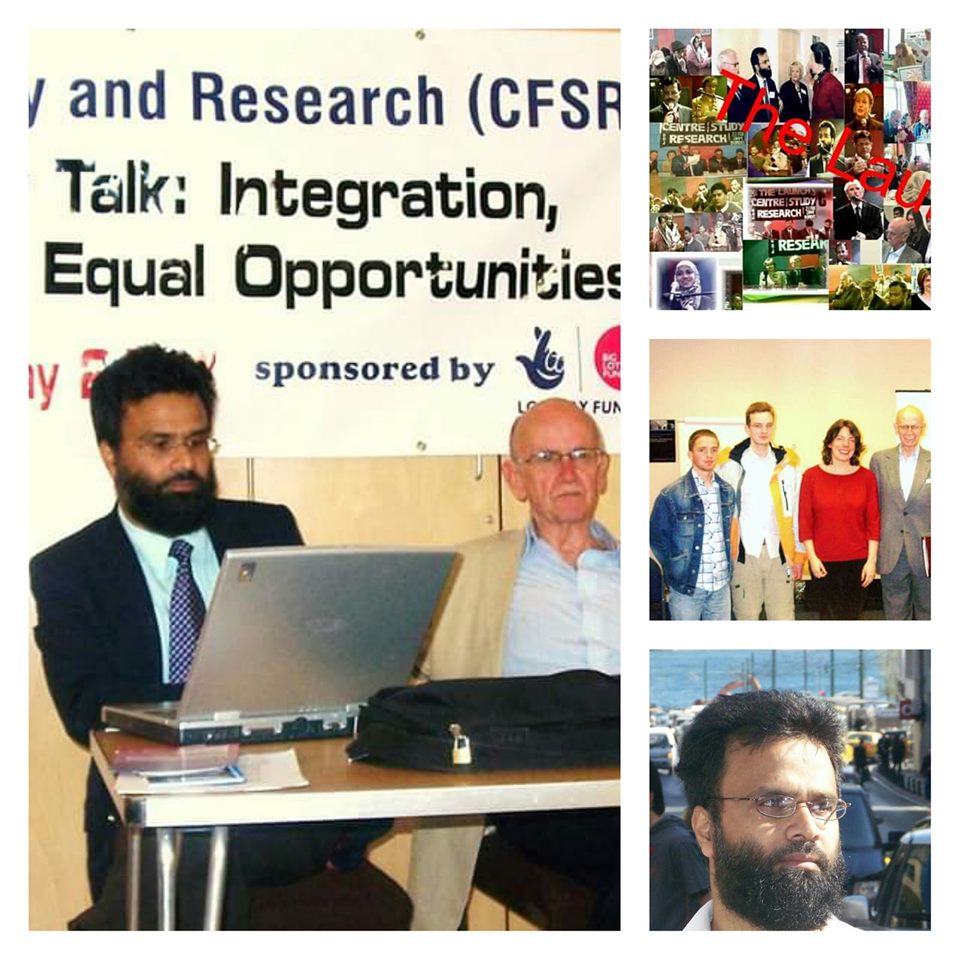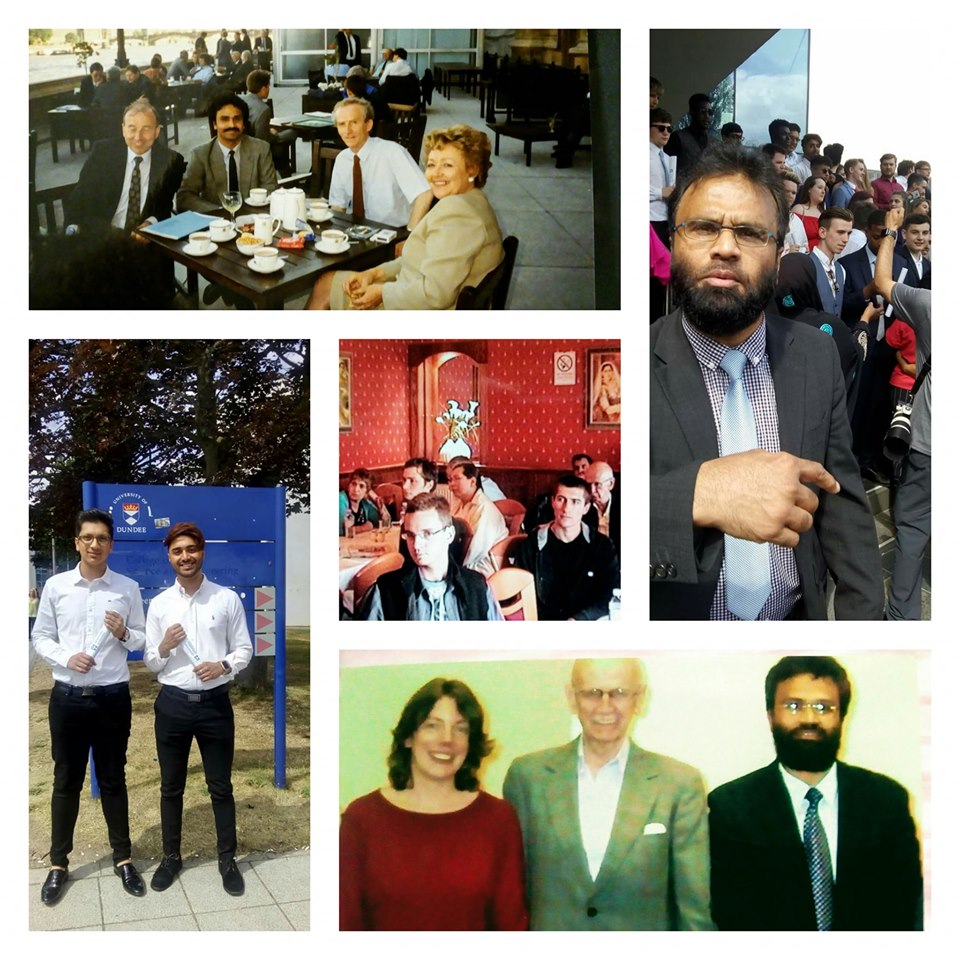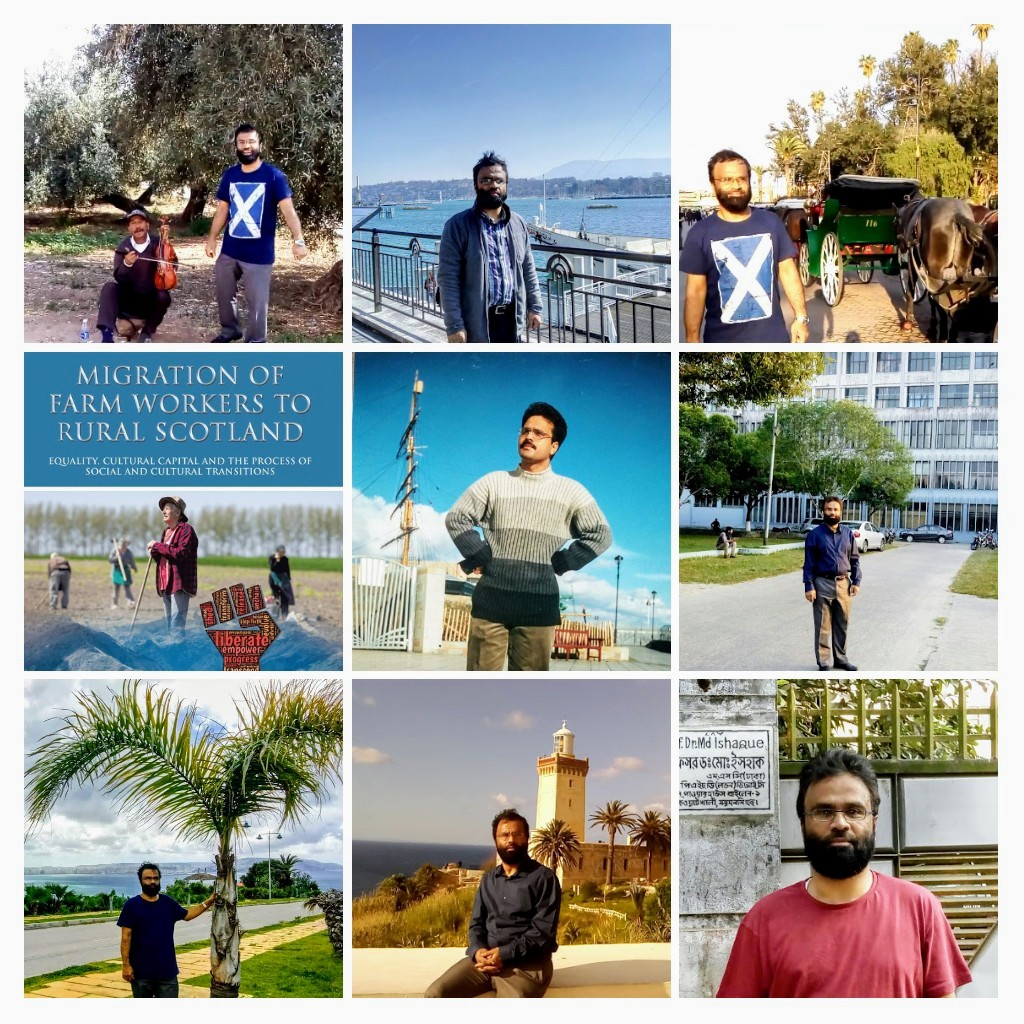
NEW RELEASE
HOW CAN I KNOW YOU? HARMONY, INTEGRATION AND EQUAL OPPORTUNITIES
How can I know and understand you? How can you know and understand me? Do you feel comfortable with me? Do you want to see me as a voter? Do you view me as a member of the wider community, an individual who is passionate to be integrated and assimilated? If we want to find real answers, we need to start asking difficult questions about topics such as harmony and Integration.
Integration is an equal opportunity, accompanied by cultural variety in an environment of harmony. In today’s fraught and divided world, civic society appears to be driven by the striving for harmony between nations as well as communities. It is of paramount importance that civic responsibility, loyalty and a degree of sense of belonging to the wider community be achieved and maintained. This places a heavy burden on individuals everywhere to create positive relationships between communities and people of different cultures, backgrounds, and institutions.
THE FABRIC OF SOCIETY
It is important that we rejoice in our differences that the community as a whole is enriched by hearts and minds readily accepting others’ people’s’ cultures and languages etc. This does not mean that we must absorb every facet of foreign cultures into our daily lives. It does mean, however, that there should be a willingness to not only tolerate but also accept and value the fact that the inclusion of features from each culture enhances the fabric of society as a whole. One of the most important social tools at the disposal of the individual, to assist in the breaking down of the barriers that clearly exist between certain segments of society and the creation of harmony, is open dialogue on the subject of integration and equal opportunities.
EQUALITY IS A CONTESTED CONCEPT
The big unanswered question about immigration is not only whether its forces have a wider positive or negative impact on the economy and society but also whether immigrants are treated as equals and their cultural capital is equally recognised and protected. What is the relevant respect in which people are to be compared? Equality as a central ideal within liberal democracies surrounds around this question. The moral, political or ethical theorists of social arrangements view with favour the need for a central moral standard that requires the fair and impartial treatment of all. Justice is viewed as a standard which has a close, though complex, connection to equality as Aristotle argues that justice is held by all to be a certain type of equality. From the classic Greek ideas of justice to the modern and postmodern understandings we understand some of the major theories of justice and equality. Classic conceptions, Western thought and philosophy or modern inquiries are always drawn back to the ancient Greeks and their conception of equality and justice.
IMMIGRATION PERSPECTIVE
Migrants move from their own country into another one in order to tap opportunities and resources that do not exist in their own country of origin and therefore improve one’s circumstances and those of one’s progeny. For skilled persons, migration provides job opportunities by mobilizing one’s social capital or acquiring cultural capital in ways not possible or available in their country of origin. For others who suffer due to several reasons, for instance, civil war, political upheaval, genocide, extreme economic disparity, and environmental disasters, migration provides ultimate haven, a practicable choice and a place of safety or sanctuary.
THE MOVEMENT OF ETHNIC MINORITIES AS IMMIGRANTS: NEW CHALLENGES
There are hours in history when human beings are on the move, from country to country, it is sometimes difficult to stop them.The movement of human beings from place to place, from job to job, or from one social class or level to another has never functioned smoothly without resistance. The movement of non-native people into a country has always been subject to the public concern and is almost certain to be opposed at local level. This concern is now one of the new challenges of 21st century life being faced by Western liberal democracies.
Arguably, the way the public policy is made with regard to immigration, immigrants have been portrayed as a threat. This image has, however, problematized immigration and has created a sense of crisis within the policy field and the wider society. This assumed crisis provokes hostility within the general population. Consequently, hostile political environments contribute to the significant barriers for all migrant groups to be fully embraced by the wider society.
MIGRATION TO RURAL WEST EUROPE
Whilst migrants’ movement might appear to be highly significant for the economy of a country struggling with stagnation and decline, large scale migration to rural West Europe has provided a major challenge for equality, integration and community cohesion that has been witnessed in recent years.
MIGRATION AND DISCRIMINATION
Both dominant and dominated class can become the owner of cultural capital (language, knowledge,experiences, skills, understanding, abilities, values, customs, talents, attributes, practices, taste, and background or skin colour). The former often ignores cultural capital of the latter. Inequality is inevitable when migrants face discrimination due to their colour and culture. They are unable to use their cultural capital to advance their goals and aims of life, despite having a degree of dominant cultural capital. Unlike majority members of a population, migrants often give up their cultural capital and take up low skilled jobs in order to gain opportunities for success in other spheres in their lives. Critiquing such a trade-off approach, if the sphere of migrants’ cultural capital is invaded and the cultural capital of local workers (native) is acknowledged, migrants are in a vulnerable position.
CONCERNS FOR ETHNIC GROUPS
There are concerns for people who have come from very different environments as they encounter problems at a time when they are placed into strange surroundings and have to cope at once with the beginning of a new life and work, and furthermore have to settle into a new environment completely. There are also concerns due to the movement of ethnic groups into the host society that has stability and no major conflicts exist within it. Such concerns can create conflicts and controversies usually between new arrivals and locals and often between members of ethnic minorities and other actors such as service providers and local communities. Due to conflicts and concerns ethnic minorities may experience exploitation, a devaluation or non-recognition of their cultural heritage, skills, and knowledge that they bring from their country of origin to the country of migration.
MIGRANT INTEGRATION: MAXIMISING DIALOGUE
Currently, the state of relations between different people, communities and cultures seems very fragile indeed. There is also evidence to suggest that certain segments of the immigrant population are apparently unwilling to assimilate and integrate. Equally worrying is the growing number of host population who exhibit ignorance and non-acceptance in their treatment of migrants as new arrivals.
We, therefore, need to hold the positive dialogue between members of a wider community to overcome our built-in prejudices against immigrants. Continuous dialogue can help win the recognition of migrants’ cultural capital through interaction, negotiation, or consultation between or among agents of governments, employers and workers on issues of interest relating to work and employment.
THE BENEFITS OF IMMIGRATION
The positive benefits of immigration are not only restricted to the benefits of immigrant manpower but also their ethnic heritage and cultural diversity that invariably add a vibrant mix to society. There are lessons to be learned from every culture no matter how old it is. A constant contribution from every ethnic group inevitably enhances the social fabric of all communities. In the same vein, the optimum position is for all immigrants to be fully embraced by the host population and to have a vehicle that offers them the opportunity to have continuous dialogue with all.
IMMIGRATION TO INTEGRATION
Whatever reasons are responsible for ethnic minorities’ movement, any native community, however, should not be concerned about ‘whether a person comes from this country or that or has this skin colour or that, or adhere to this religious practice or that’. Instead, host community should suggest a scale at which people can easily interact and recognize one another. They can feel the recognition of their cultural capital and the absence of major discrimination and inequality and of exploitation and oppression.
Watch NEW RELEASES
If you wish to review my books titled `Migration of Farm Workers to Rural Scotland: Equality, Cultural Capital and the process of Social and Cultural Transitions’ and `Equality and Cultural Capital for Ethnic Minorities- Embarking on the path of Community Learning and Development’, please write your name, followed by what you thought of the book.
Your Name:
Email:
Message:
submit to: drmostafa@iqbalmostafa.com


